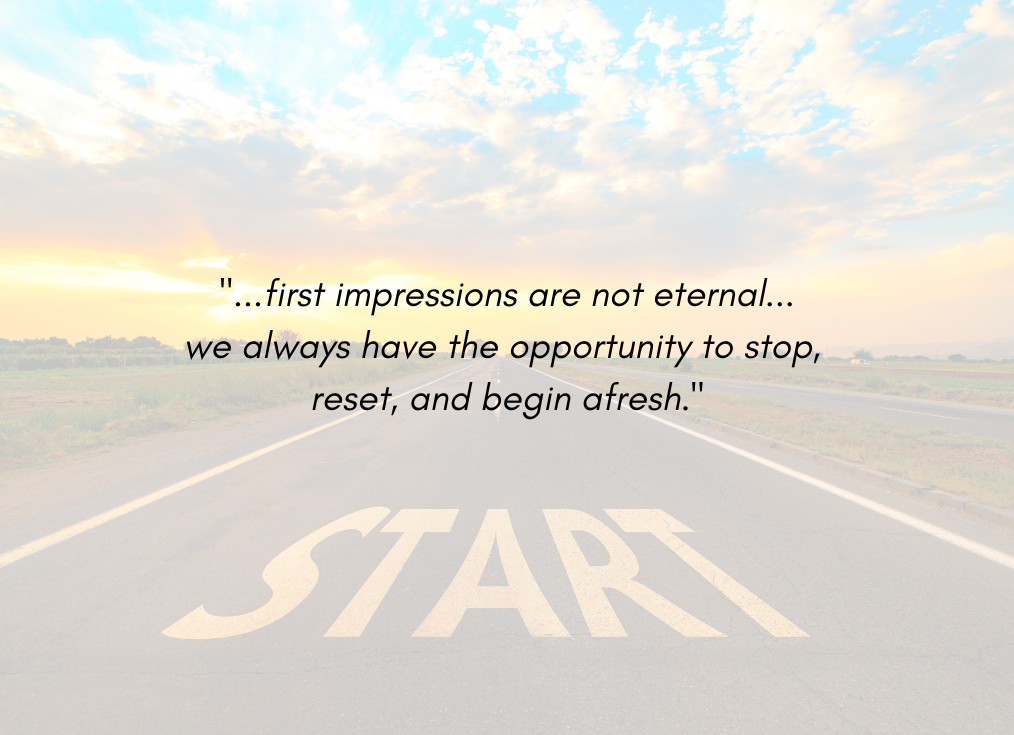Resetting the Journey

October 21, 2022 / 26 Tishrei 5783
Bereisheet, tabula rasa, or “In the beginning,” no matter in what language we convey the message, the intent of this week’s Torah portion is to conjure up the image of a blank slate with Gd starting to create the world from scratch. Returning to this first parshah of the Torah every year enables us to reset ourselves and move forward with a clean, new, and fresh perspective.
How nice would it be if we could genuinely and sincerely reach out to a friend, colleague, or even family member, and ask to reset the relationship in order to build a new one, on a new foundation of trust, empathy, and mutual respect?
Years ago, too long to remember the time, place, or context, I was introduced to the oft-attributed Will Rogers quote, “You never get a second chance to make a first impression.” How true it is that once a relationship has been defined, once that first impression has been established, trying to repair, redirect, or redefine it is seemingly impossible.
However, what we learn from the Torah is that first impressions are not eternal. Yes, they are powerful determinants in guiding the initial phase of any relationship, but where we end up is really determined by the decisions we make, and the actions we take, along the journey. And, if we think of our life’s journey as a compilation of smaller individual journeys then we always have the opportunity to stop, reset, and begin afresh.
In Steven R. Covey’s seminal book, “7 Habits of Highly Effective People,” we read that reframing what we know to be true can potentially reset a derailing relationship. Covey uses the example of “love,” where he skillfully enlightens the reader to differentiate between its complex emotional state to its simple linguistic definition. While counseling a husband challenged with perceiving that he has fallen out of love with his wife, Covey replies, “My friend, love is a verb. Love – the feeling – is a fruit of love, the verb. So love her. Serve her. Sacrifice. Listen to her. Empathize. Appreciate. Affirm her. Are you willing to do that?”
In this week’s Torah portion Gd creates Adam as the lone man in a new world. However, not soon after his creation, the text reads, “It is not good for man to be alone.” (Genesis 2:18).
This week’s text teaches us that no matter where our relationships have taken us thus far, we can (and often should) reset the journey and reset our starting point. Our relationships with others are key to our own health and welfare. For us to grow, improve, and find happiness in the lives we live, we need to actively invest in loving others as we love ourselves. If we can do this not only will our personal lives improve, but we will heal our fracturing society. Let us all be blessed this week with the strength to pursue the lessons that started us “In the beginning” because we are…
Shabbat shalom,

